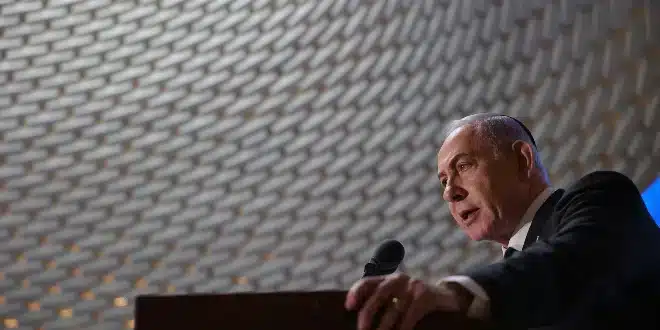Israeli Prime Minister Benjamin Netanyahu arrived in Washington on Monday, but his visit was overshadowed by President Joe Biden’s unexpected decision to withdraw from the presidential race. This visit, initially anticipated for its high-profile meetings and a significant address to Congress, now pivots on the critical ceasefire negotiations in Gaza.
Despite the backdrop of Biden’s withdrawal, Netanyahu’s meetings remain crucial for advancing the prospects of a ceasefire. Senior US officials believe a deal is close, but a key question persists: Does Netanyahu genuinely want a ceasefire?
Israeli media and political analysts often suggest Netanyahu benefits more from prolonging the war, using it to delay accountability for the October 7 attacks and to fend off calls for new elections. His party’s popularity has risen, and his coalition partners have threatened to withdraw support if he ends the war.
Biden has also hinted that Netanyahu might be extending the conflict to maintain power. There are signs Netanyahu might be complicating the negotiations, such as retracting concessions and insisting on control over key areas. Publicly, his rhetoric often casts doubt on Israel’s commitment to a deal.
However, Netanyahu’s team continues to engage in the negotiations, and there is mounting pressure from the Israeli public and hostage families to reach an agreement. Shortly after arriving in Washington, Netanyahu indicated that a deal to secure the hostages’ release might be imminent.
Netanyahu’s supporters assert his genuine interest in a deal, provided it allows Israel to continue its operations in Gaza if necessary. This tension will be evident during his visit, where US officials and lawmakers will push him towards a ceasefire.
Biden, meeting Netanyahu for the first time since his October visit to Israel, is expected to adopt a more critical stance. The US president has become increasingly vocal about the civilian toll in Gaza, leading to a suspension of some US munitions shipments to Israel.
With Biden stepping down from the presidential race, the dynamics of their discussions may shift further. Netanyahu, a keen observer of US politics, might also consider former President Donald Trump’s stance. Although Trump has criticized Biden’s approach to Israel, he has also urged Israel to conclude the conflict swiftly.
Netanyahu’s Washington visit will be pivotal, balancing domestic political pressures with international calls for a ceasefire, all under the shadow of Biden’s recent announcement and the upcoming US elections.


